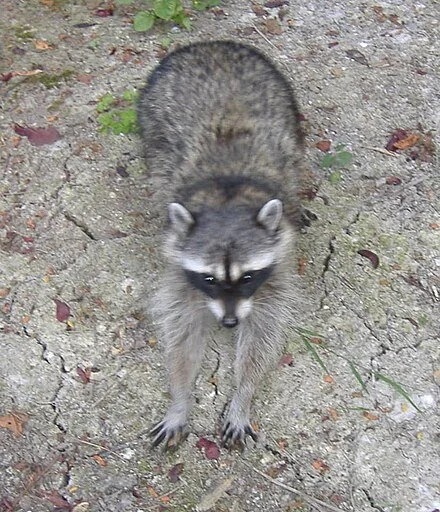Raccoons: The Adorable Bandits of Nature and Their Ecological Importance
Raccoons, with their masked faces and dexterous paws, are often considered some of the cutest animals in the wild. Their playful antics and curious nature endear them to many, but raccoons are much more than just charming creatures. They play significant roles in nature, providing numerous benefits to the environment and ecosystem.
The Adorable Nature of Raccoons
Raccoons are undeniably cute, with their distinctive black “masks” and ringed tails giving them a mischievous appearance. Their expressive eyes and nimble hands make them appear almost human-like in their actions. Watching a raccoon wash its food or explore its surroundings with curious paws can be a delightful experience. Their playful behavior, especially among young raccoons, showcases their intelligence and adaptability, further adding to their appeal.
The Role of Raccoons in Nature
Raccoons are omnivorous, opportunistic feeders, meaning they eat a wide variety of foods including fruits, nuts, insects, small animals, and even human leftovers. This varied diet allows them to thrive in diverse environments, from forests and wetlands to urban areas. Their adaptability is a testament to their important role in the ecosystem.
Benefits Raccoons Bring to the Environment and Ecosystem
Seed Dispersal: By consuming fruits and berries, raccoons help with seed dispersal. As they move around and defecate, they spread seeds across various areas, promoting plant growth and forest regeneration.
Pest Control: Raccoons feed on a variety of insects and small rodents, helping to control populations of these potential pests. Their diet includes beetles, grubs, and other insects that can damage crops and gardens, making raccoons natural pest managers.
Scavengers and Cleaners: As scavengers, raccoons play a vital role in cleaning up the environment. They consume carrion (dead animals) and organic waste, which helps prevent the spread of diseases and keeps ecosystems clean. This scavenging behavior also recycles nutrients back into the soil.
Soil Aeration: While foraging for food, raccoons often dig and disturb the soil. This natural aeration process helps to improve soil health by increasing its permeability and mixing nutrients, which benefits plant growth.
Food Source for Predators: Raccoons themselves are prey for larger animals such as coyotes, owls, and bobcats. This makes them an essential part of the food web, supporting the survival of these predators.
Coexisting with Raccoons
Image credit: Wikipedia
While raccoons offer numerous ecological benefits, their close proximity to human settlements can sometimes lead to conflicts. Here are some tips for coexisting peacefully with these adorable bandits:
Secure Trash Bins: Use raccoon-proof lids or store bins in a secure location to prevent raccoons from scavenging in your trash.
Eliminate Food Sources: Avoid leaving pet food outside and clean up any fallen fruit or nuts from trees in your yard.
Seal Entry Points: Ensure that your home, attic, and other structures are secure to prevent raccoons from making nests in these areas.
Respect Their Space: Observe raccoons from a distance and avoid feeding them to keep their natural behaviors intact.
Conclusion
Image credit: Wikipedia
Raccoons are more than just cute faces; they are vital contributors to the health and balance of ecosystems. From seed dispersal and pest control to scavenging and soil aeration, raccoons provide essential ecological services that benefit both the environment and human communities. By understanding and appreciating their role in nature, we can learn to coexist with these intelligent and adaptable creatures, ensuring that they continue to thrive in our shared landscapes.




